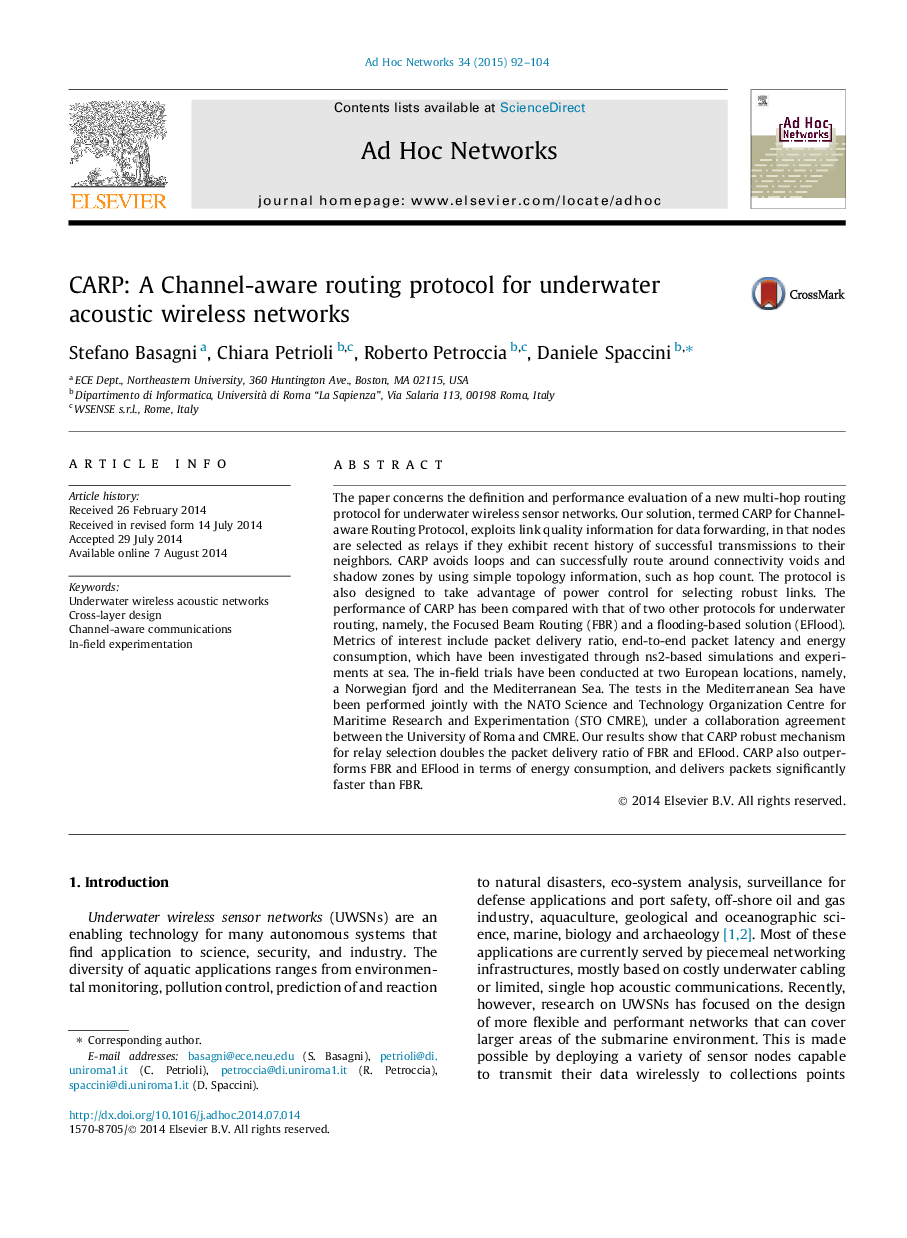| Article ID | Journal | Published Year | Pages | File Type |
|---|---|---|---|---|
| 445604 | Ad Hoc Networks | 2015 | 13 Pages |
The paper concerns the definition and performance evaluation of a new multi-hop routing protocol for underwater wireless sensor networks. Our solution, termed CARP for Channel-aware Routing Protocol, exploits link quality information for data forwarding, in that nodes are selected as relays if they exhibit recent history of successful transmissions to their neighbors. CARP avoids loops and can successfully route around connectivity voids and shadow zones by using simple topology information, such as hop count. The protocol is also designed to take advantage of power control for selecting robust links. The performance of CARP has been compared with that of two other protocols for underwater routing, namely, the Focused Beam Routing (FBR) and a flooding-based solution (EFlood). Metrics of interest include packet delivery ratio, end-to-end packet latency and energy consumption, which have been investigated through ns2-based simulations and experiments at sea. The in-field trials have been conducted at two European locations, namely, a Norwegian fjord and the Mediterranean Sea. The tests in the Mediterranean Sea have been performed jointly with the NATO Science and Technology Organization Centre for Maritime Research and Experimentation (STO CMRE), under a collaboration agreement between the University of Roma and CMRE. Our results show that CARP robust mechanism for relay selection doubles the packet delivery ratio of FBR and EFlood. CARP also outperforms FBR and EFlood in terms of energy consumption, and delivers packets significantly faster than FBR.
